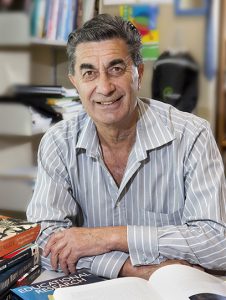
June 11, 2014
4:30 p.m. – 6:00 p.m. | Neville Scarfe Room 310, 2125 Main Mall
Dr. Angus Hikairo Macfarlane, Professor of Maori Research at the University of Canterbury
This presentation will be based on the question about how best to study the influence of culture on the advancement of educational policy and practice in New Zealand. This has been a subject of ongoing debate given the various theoretical approaches (to research and teaching) being generated, tried, and critiqued. These theories or models have guided research efforts, with mixed success. A key argument is that these conversations have been dominated by Euro-American influences with limited deliberations on their relevance to, and grounding on, the worldview of Indigenous people. Recently, culturally-grounded methodologies advocating Maori concepts, values and strategies have made their mark on the scene in disciplines grounded in psychology – community, clinical and educational. This presentation will outline two approaches that orient their content from a cultural context in Aotearoa/New Zealand; one a ‘awa whiria’ (braided rivers) approach and the other a ‘huakina mai’ (opening doorways) approach.
Angus Hikairo Macfarlane is an educational psychologist of Te Arawa Iwi – one of a number of Indigenous groups in Aotearoa/New Zealand. The thrust of his activities is concerned with the exploration of cultural concepts and strategies that affect positively on the professional practice of educational and clinical psychologists. Dr. Macfarlane is the recipient of many prestigious research and teaching awards. He has a prolific résumé of publications and has many international university associations.
Sponsors: The Centre for Culture, Identity & Education, WERA Global Ethics in HE International Research Network, The Indigenous Education Institute of Canada, and Educational and Counselling Psychology, and Special Education.